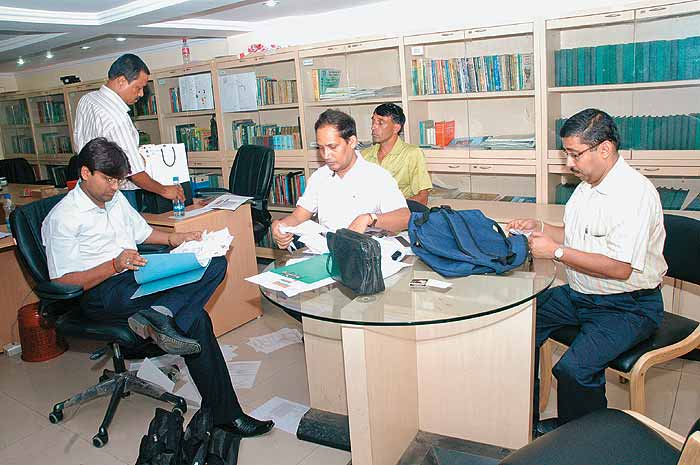Warrant in name of a dead person does’t make 158BC/158BD proceedings invalid: Gunjan Girishbhai Mehta vs. DIT (Supreme Court)

Sections 132 and 158BC/158BD of the Income Tax- Warrant in name of Dead Person does not make proceedings invalid
Sections 132 and 158BC/158BD of the Income Tax Act: The fact of the instant case that the search conducted was valid even if the warrant was issued in the name of a deceased person, therefore the 158BC/158BD proceedings stands valid since the assessee participated in them. The evidence discovered in the search conducted, if capable of issuing a notice under section 158BD, can’t completely become immaterial because the search so conducted is invalid.
Issue: Are proceeding under Sections 132 and 158BC/158BD of the Income Tax invalid where warrant issued in name of Dead Person
The notice issued under Section 132 was in the name of a deceased person. The above-mentioned notice was received the legal heir (who is the present petitioner) of the deceased person. The assessment notice U/s 158BC of the Income Tax Act was issued and in the proceedings, where the declared income is ‘nil’, the legal heir as the present petitioner had participated. Afterward, a notice U/s 158BD of the Income Tax Act was issued to the petitioner on the base of information discovered in the course of a search. Aggrieved, the petitioner on the dismissal of the writ petition filed, moved the High Court, the present SLP (Special Leave Petition) was brought about.

Argument by Petitioner – Where Original Search is invalid as person was dead, are consequential action u/s 158BD valid
The point insisted before the court, is that if the original warrant of search is not valid, and then the consequent action U/s 158BD of the Income Tax Act would also be invalid. The search warrant was not raised before the issuance of the notice U/s 158BD of the Income Tax Act. In fact, the present petitioner had participated in assessment the proceedings initiated U/s 158BC of the Income Tax Act. The evidence discovered in the search conducted, if capable of issuing a notice under section 158BD, can’t completely become immaterial for further action U/s 158BD of the Income Tax Act.
The support placed on the pronouncement of Punjab and Haryana High Court in CIT, Karnal vs. Rakesh Kumar, Mukesh Kumar against which SLP has been duly dismissed by this Court and the decision of the court in ACIT, Chennai vs. A.R. Enterprises are on completely different facts.
In the case of Rakesh Kumar, Mukesh Kumar (supra) the test was on the assessment proceedings U/s 158 BC of the Income Tax Act on the base of a search warrant issued in the name of a deceased person. However, the issue in A.R. Enterprises case (supra) has no correspondence to the issue in hand, namely, the validity of the proceedings U/s 158BD of the Income Tax Act.


 ITAT Amritsar: No Section 269SS Violation for One-Time Cash Payment Before Sub-Registrar
ITAT Amritsar: No Section 269SS Violation for One-Time Cash Payment Before Sub-Registrar  Tax Officials Unleash Digital Dragnet: How New Raid Powers Redefine Privacy, Property Rights in India and likely to Fuel Corruption
Tax Officials Unleash Digital Dragnet: How New Raid Powers Redefine Privacy, Property Rights in India and likely to Fuel Corruption  Income Tax Department Rewards for Reporting Tax Evasion: A Comprehensive Guide
Income Tax Department Rewards for Reporting Tax Evasion: A Comprehensive Guide  Forfeiture of Gratuity by Employer- What are the Remedies for an employee- Can employer be challenged?
Forfeiture of Gratuity by Employer- What are the Remedies for an employee- Can employer be challenged?  Employer can forfeit gratuity of an employee in case of moral turpitude
Employer can forfeit gratuity of an employee in case of moral turpitude  Diving Deeper: The Impact of the New Tax Bill on Dairy and Farming Income
Diving Deeper: The Impact of the New Tax Bill on Dairy and Farming Income